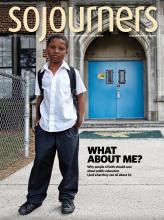RECENT MOVIES have been dominated by a surprising theme: the exploration of gender through black goo in outer space, strippers in Florida, and a red-haired teenage rebel in mythical Scotland. Detours among British ex-pats in India in The Best Exotic Marigold Hotel, a genetically modified high school student in New York in The Amazing Spider-Man, and a scout troop on a coastal New England island in the fabulous Moonrise Kingdom added flavor to the mix. But it was the deceptively simplest of films that caused me to think most about what it means to be a human being, and how the fact of gender must be wrestled with, negotiated, and contested rather than assumed.
The wonderful thing about Pixar’s Brave is how it negates the historic disempowerment of female fairy tale protagonists. This is a new kind of Disney princess: one who doesn’t need a man to save her, nor homicidal violence to achieve victory; one who develops a healthy relationship with her mother; one, ultimately, who takes responsibility for her mistakes, integrating Snow White purity with Mulan’s steel. It’s also a physically beautiful movie, delightfully entertaining, and alive for adults and kids alike.
On the other hand, the world of Magic Mike, wherein Channing Tatum relives his earlier career as a bachelorette-party treat, is a film about lost men who play on stereotypical female desire for tips. The soulful yearning for intimate connection that Mike embodies is the most emotionally resonant part of a film otherwise of average interest.
Read the Full Article

